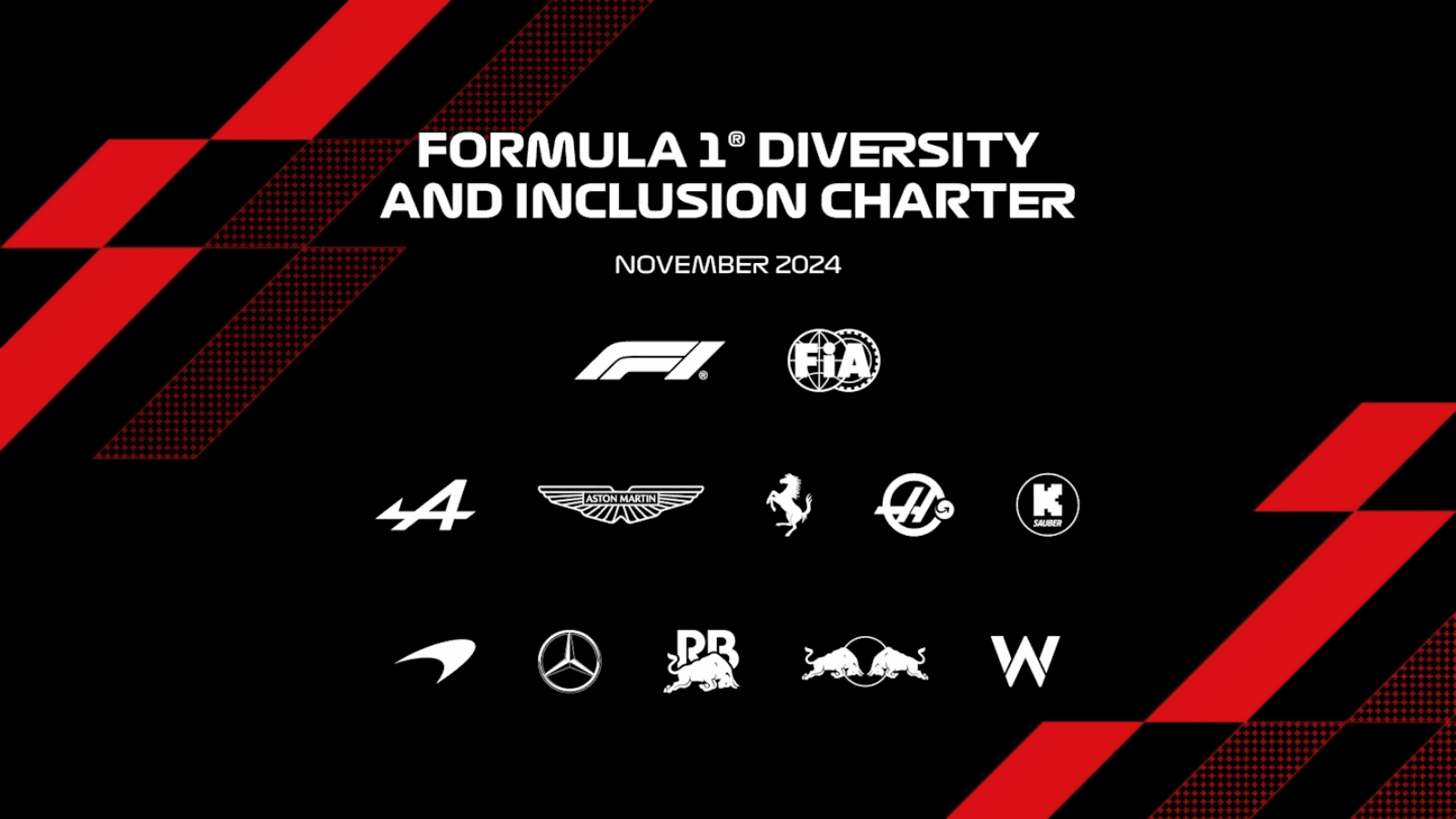Formula 1, its 10 teams and the sport’s governing body have agreed to a new Diversity and Inclusion charter, with support from Lewis Hamilton.
The charter is based on a report delivered by the seven-time world champion’s Hamilton Commission back in 2021, and has been created with its support, as well as that of the Royal Academy of Engineering.
Implementation of the charter will be supported by Hamilton’s own charity: Mission 44.
The charter is a continuation of F1’s drive to promote opportunities for those from a wide range of backgrounds, and is based on a “vision and mission” as well as “four key pillars of focus”.
F1 says its vision is to “enable anyone to access, contribute to, and enjoy global motorsport,” with the mission being to: “Identify and remove barriers to attract and retain a rich diversity of people in our workplaces, improving our ways of working, and engaging with stakeholders to drive innovation,” and the four pillars to “attract,” “retain,” “create,” and “engage”.

Charter ‘an important milestone,’
F1’s President and CEO Stefano Domencali said: “Our sport is rightly recognised for its elite performance and innovation, and we are clear that the only way to maintain and improve those exceptional standards is to welcome diversity of thought, ideas, and experiences.
“The sport is fiercely competitive, and we’re all committed to employing the very best talent. We know from The Hamilton Commission report that there are opportunities for us to work collectively to both find and nurture that talent, and across the sport significant change has already been put in place.
“The charter is the next important milestone on that journey, and we are all committed to making our sport more open and diverse.”
President of the sport’s governing body, the FIA, Mohammed Ben Sulayem, said: “The diversification of motorsport is paramount to its continued success. Through ensuring equal opportunity for equal talent, increasing accessibility, and joining together in our commitment to uphold this charter, we will drive forward change.
“This landmark partnership between Formula 1, the teams, and our Federation signifies a united course of action which I am proud to be a part of.”
The Royal Academy of Engineering’s Chief Executive, Dr Hayaatun Sillem CBE, said that F1 took the Commission’s findings “seriously,” adding: “And since then the sport has created a range of initiatives to increase diversity.
“This charter, which the sport commissioned us to create independently, sets a framework for progress and establishes commitment to both principles and action. It is a key step in F1’s ongoing efforts to improve access and performance, and we believe it will be a catalyst for even more positive impact and cross-sport working.”









